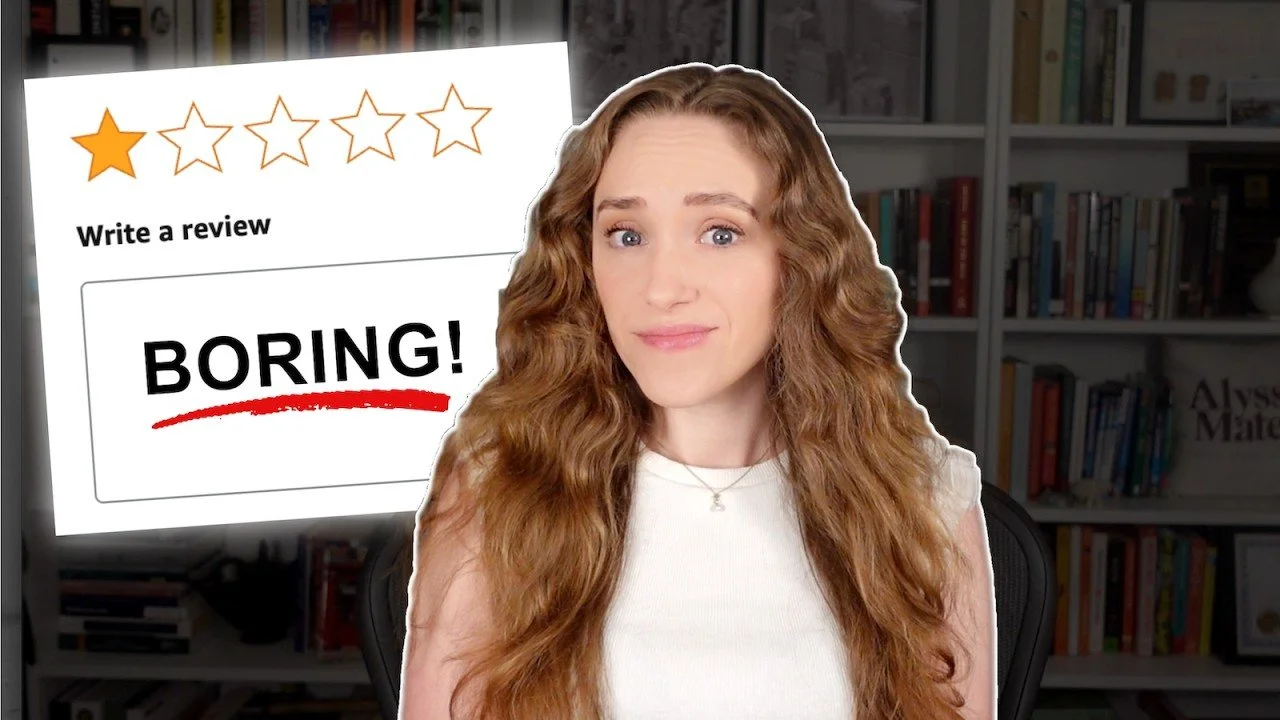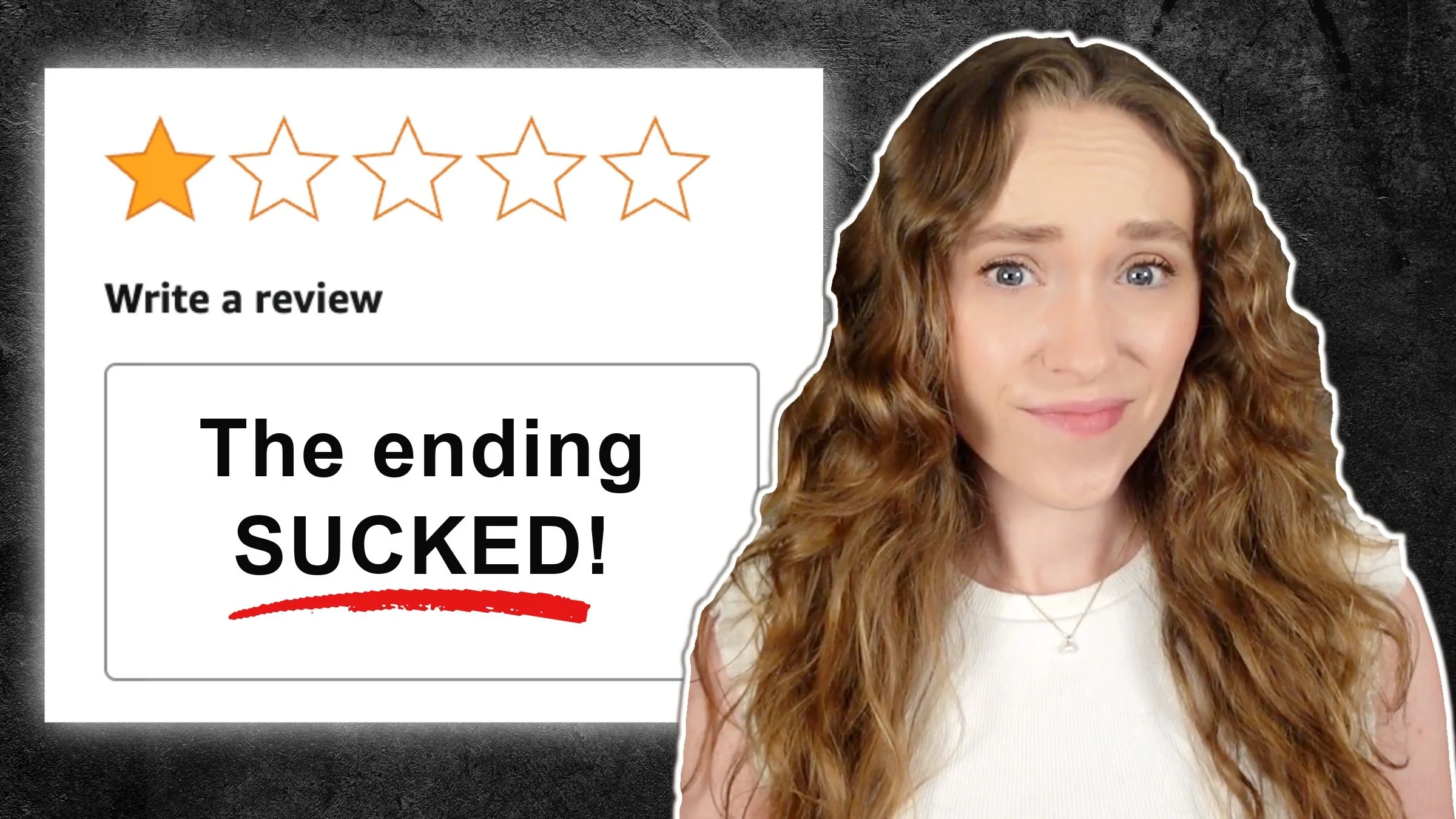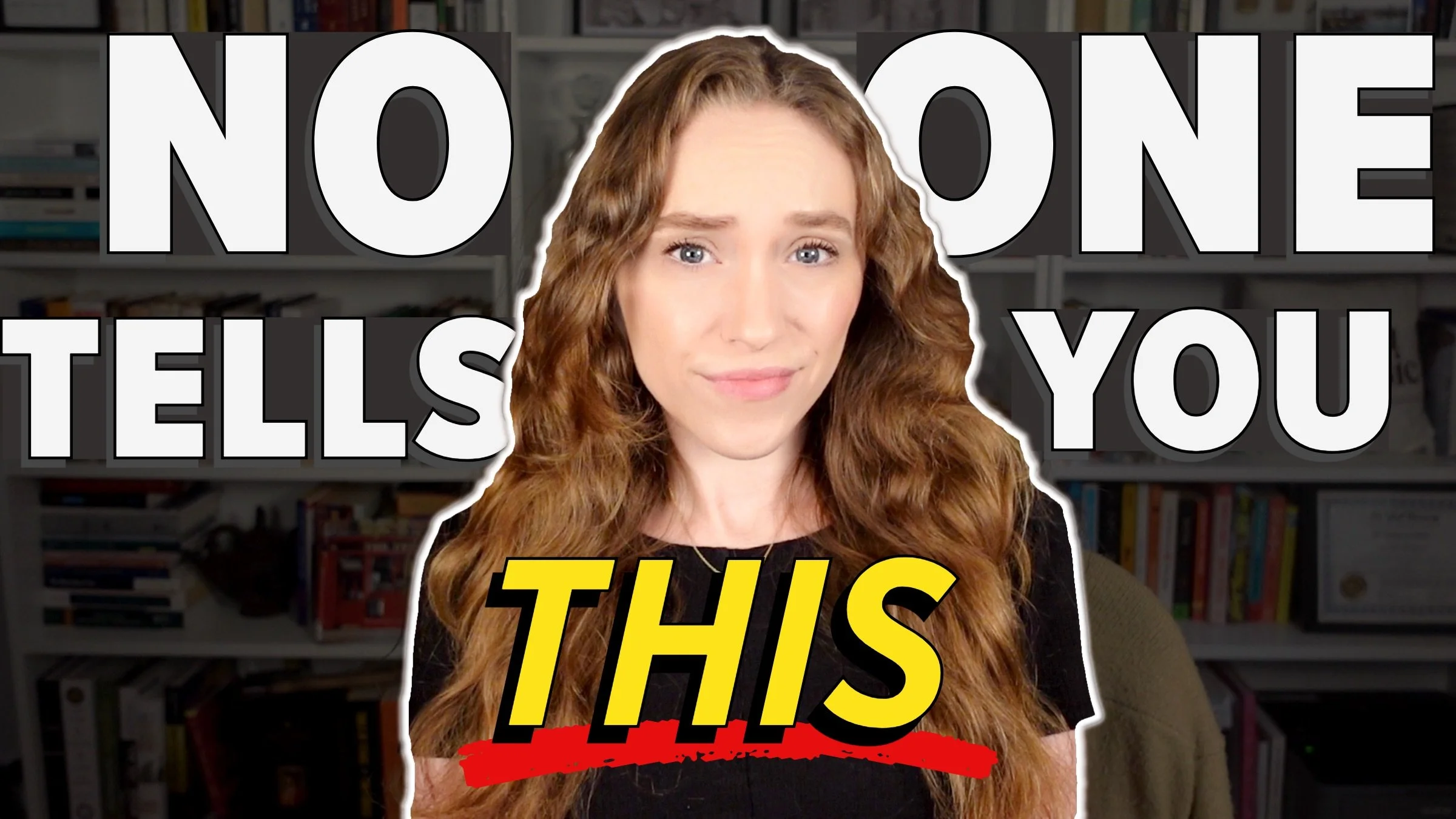Words to Cut From Your Novel to Instantly Improve Your Writing
HIT PLAY OR READ THE POST BELOW:
When it comes to strong writing, less is often more. So, cutting unnecessary words from your manuscript is one of the best ways to elevate your writing and make it sound more professional, polished, and engaging.
You can immediately tell when an author is extremely intentional with their word choices. They make every single word matter. Amateur writers, on the other hand, often veer into overwriting, where there are more words on the page but the author is actually saying much less. This can clog up the story and make the reader disengage.
Here are five types of words to cut from your novel to immediately improve your prose.
Filter Words
These words create a barrier between the reader and the narrative by filtering the events of the story through the narrator or POV character. Remember that if you establish your POV correctly, then the reader should already understand and internalize that the events of the story are being narrated from that perspective.
Filter words often include sensory verbs, like see, hear, or feel, or verbs that indicate the character's perception, like realized, learned, decided, etc. You can often think of filter words as relating to the five senses: sight, sound, smell, touch, and taste. Instead of allowing the reader to directly inhabit the events of the story and the scene, we're being told how the character is interpreting or perceiving the events. This can weaken the impact of the writing, so cutting these words from your novel is going to make your narrative so much more immersive, engaging, and immediate. You're going to put us directly in the events of the story and allow us to fully inhabit the character's experience.
Let's look at a couple of examples:
"Susan saw a shadow creeping along the hallway."
Here, we are in Susan's POV in close third person, so we can just say:
"A shadow crept along the hallway."
We already understand that it is Susan perceiving this.
Here's another example:
"I felt disturbed as I watched the film."
Since this is written in first person, we know it's the narrator's interpretation, so we can just say:
"The film disturbed me."
Do you see how removing those filter words makes the prose so much cleaner and more dynamic?
Words Indicating Passive Voice
The next words to cut from your novel manuscript are words indicating passive voice. In general, passive voice tends to be a weaker form of writing than active voice because it's less direct and tends to be clunkier. Words like “is,” “was,” “were,” or phrases including "by" can indicate passive voice — but using those words doesn't necessarily indicate passive voice, so you need to check each time you use them.
Let's look at an example:
Passive: "The ball was kicked by John."
Active: "John kicked the ball."
We just made the sentence clearer, easier to read, and we shaved off two words.
As you're revising your manuscript, try to watch for instances of passive voice. It’s not always necessary to revise passive voice, because you can use it intentionally, such as if you want to be vague in describing who is doing an action to build suspense. But I bet you're going to come across at least a few instances of passive voice that you can revise to be active.
Weak or Unnecessary Adverbs
The next words to cut from your novel are weak or unnecessary adverbs. If not used strategically, adverbs can dilute the impact of your writing and make it less precise. This includes adverbs like “suddenly,” “really,” “very,” and a whole host of other adverbs ending in "-ly". They often add unnecessary fluff to your sentences without adding substance or contributing to the meaning. Typically, there is a much stronger descriptor that you can use in place of that adverb.
Not all adverbs are bad, but the key is to make sure you're using them all intentionally and strategically and that they are contributing to the scene. I saw a great example of this recently: think of the phrase "killing me softly." In this case, the adverb is interesting because it contrasts with what we know killing to be: something violent. But the phrase "killing me violently" is not quite as effective, because we presume the act of killing to be violent.
Let's look at an example of unnecessary or weak adverbs.
Original: "I whispered quietly."
Revised: “I whispered.”
Whispered already implies that someone is being quiet.
Here’s another:
Original: "She was very tired."
Revised: “She was exhausted.”
“Exhausted" literally means "very tired," so we can use a stronger word here.
Excessive Dialogue Tags
Overusing attributions in dialogue like "he said," "she whispered," "they shouted" can clog up the narrative and become cumbersome to read. Some amount of dialogue tags or attributions are necessary to clarify who is saying what, but if you use too many of them, they can disrupt the flow of the scene and end up being distracting.
Here's an example:
"I can't believe it," Jane said.
"What's the matter?" John asked.
"I lost my keys," she replied.
"Did you check the kitchen?" he questioned.
When every single line of dialogue is followed by an attribution or tag, it makes the exchange feel very mechanical and stilted. So, to improve the flow of the dialogue, we can reel back how many tags we are using and also strategically use descriptions of the characters’ movements throughout the scene to indicate who is saying what.
Here's an example of a revised passage:
Jane slammed the door behind her. "I can't believe it," she said.
"What's the matter?" John turned to face her.
"I lost my keys."
He gestured toward the kitchen. "Did you check in there?"
Do you see how the reader can follow who's speaking just from the description of action and contextual clues? This allows the conversation to flow smoothly and naturally without sacrificing clarity. Of course, if you need to use a dialogue tag here or there — "he said" or "she said” — that's totally fine. Just make sure it's warranted.
Pet Words or Phrases
The final words to cut from your novel are pet words or phrases. These are words or phrases that are specific to you that you tend to overuse in the story, and you probably don't realize that you're doing it. Every author has their favorite words and phrases, but overusing them can feel tiresome because the reader will start to pick up on the usage of this specific phrase.
This often comes up when we see an author describing a character's appearance in the same way over and over, such as "sky-blue eyes" or "flaxen hair." These can be hard to spot on your own, because you probably don't realize you're using these pet phrases. So, I recommend reading your work aloud to surface these, or potentially asking a reader if they have come across any specific phrases that were overused in your story. Then, once you know what those pet phrases are, you can run a search through your manuscript for those phrases and vary your prose as needed.
I hope this helped you identify some easy ways to cut words from your manuscript and make it so much stronger. My goal is to empower you to make your prose even more powerful and intentional.
Thank you so much for reading, and happy writing!






